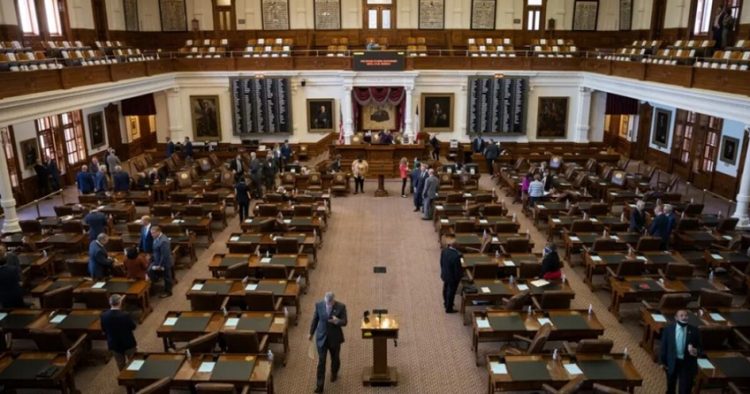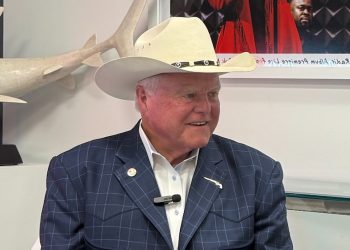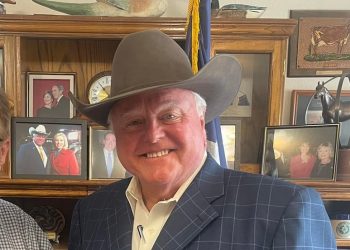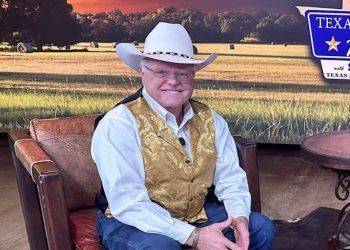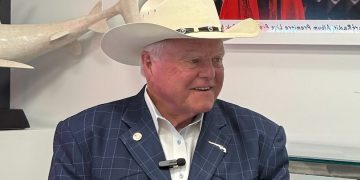Waco, TX – As the Texas House prepares for a crucial floor vote on the next Speaker of the House, the race between Republican David Cook and former Representative Dustin Burrows has become a flashpoint for deepening divisions within the Texas Republican Party. With just a month to go before the vote, top Republicans are once again warning incumbents that they could face primary challenges if they don’t back Cook, who secured the House Republican Caucus endorsement despite a vote that did not include all members.
Burrows, who earlier this month declared victory and claimed to have secured enough support from both Republicans and Democrats to win the Speaker’s gavel, saw his momentum quickly falter. Shortly after his announcement, several lawmakers who had initially supported him pulled their names from the endorsement list, signaling the volatile nature of the race and the fractured state of the GOP.
As of now, neither Cook nor Burrows has secured the 76 public endorsements required to guarantee victory in the upcoming floor vote. The uncertainty surrounding the Speaker’s race reflects the broader strategic battle between two factions of the Republican Party: the conservative wing and the more establishment-oriented moderates.
Political analysts say the Speaker’s race has become a symbolic battle between the conservative and establishment wings of the Texas GOP. Matthew Wilson, a political expert, noted that the ongoing divide reflects a decade-long struggle within the party over control of House leadership. “The huge question is how many moderate establishment Republicans are willing to vote with the Democrats to elect a Speaker,” Wilson explained. “If they do, they will be vulnerable to primary challenges, as we’ve seen in recent elections. Many Republicans who voted against hard-right issues, like impeaching Ken Paxton or opposing school choice, have lost their seats in the primaries.”
Wilson’s remarks highlight the stakes for moderate Republicans who might be inclined to support Burrows—a more centrist figure compared to Cook. For these lawmakers, the threat of a conservative-backed primary challenge could be enough to make them reconsider their position.
Despite the long time frame before the next elections, the influence of primary challenges is a significant factor in the current Speaker’s race. Wilson emphasized that while many voters might forget about the vote by the time the next primary cycle rolls around, activists—who are the driving force behind these challenges—have long memories and wield considerable power. “Activists are the ones who fund primary challenges and turn out to vote in primaries,” he said. “They will remember.”
The Texas GOP’s recent history is filled with instances where incumbents who were seen as insufficiently conservative were targeted in primaries. Those who defied the hard-right wing of the party found themselves facing not just electoral opposition, but in some cases, successful primary campaigns that resulted in their ouster.
Whoever ultimately prevails in the Speaker’s race will have a profound impact on the direction of Texas legislation, particularly as the state enters another legislative session. The question on many minds is whether the Texas House will take on the same conservative flavor as the state’s Senate, led by Lt. Governor Dan Patrick, or whether it will remain more moderate and at times a check on the more right-wing policies pushed by the Senate.
If Cook prevails, analysts predict that the House will likely become more aligned with the Senate’s conservative stance. Under Cook’s leadership, Democrats could lose their committee chairmanships, and conservative legislation may have a much easier path to reaching Governor Greg Abbott’s desk. This could lead to more sweeping conservative reforms, including stronger pushes on issues like school choice and border security.
Conversely, if Burrows manages to secure the Speaker’s gavel, the Texas House could remain more of a roadblock to the Senate’s ambitions. Burrows, who is seen as more of a centrist, would likely be more inclined to forge cross-party alliances, which could slow down some of the more conservative legislative priorities.
The battle for Speaker has also seen the involvement of outside figures, including notable supporters like Donald Trump Jr., who recently endorsed David Cook on social media. This outside pressure has added another layer of complexity to the race, with some lawmakers reevaluating their support for Burrows in light of the political climate heading into the 2024 election cycle.
Wilson pointed out that while outside voices do have an impact, the decision for many lawmakers will ultimately come down to how they perceive their political survival in a rapidly changing Texas GOP. “It’s 2024, and the landscape has changed,” he said. “Republicans are more willing than ever to come after incumbents they see as insufficiently conservative. People are going to be cautious about aligning with Democrats or appearing to weaken Republican power in the state.”
As the race for Speaker of the Texas House intensifies, the internal divisions within the Texas Republican Party are clearer than ever. With both David Cook and Dustin Burrows struggling to secure the necessary public endorsements, the outcome of the floor vote next month remains uncertain. What is clear, however, is that whoever becomes Speaker will play a pivotal role in shaping the state’s legislative agenda and determining the future direction of the Texas GOP. As the vote approaches, all eyes will be on the divided party and the strategic calculations that will ultimately determine the next leader of the Texas House.

